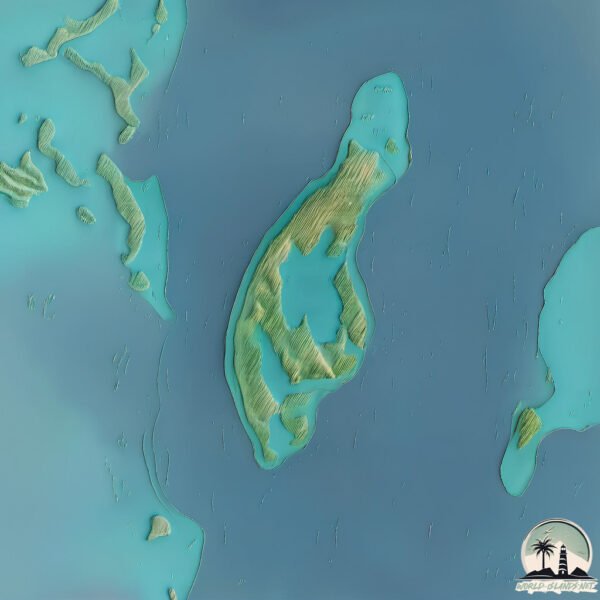Turneffe Atoll

Welcome to Turneffe Atoll, a Tropical island in the Caribbean Sea, part of the majestic Atlantic Ocean. This guide offers a comprehensive overview of what makes Turneffe Atoll unique – from its geography and climate to its population, infrastructure, and beyond. Dive into the details:
- Geography and Size: Explore the island’s size and location.
- Climate and Weather: Weather patterns and temperature.
- Topography and Nature: Uncover the natural wonders of the island.
- Infrastructure and Travelling: Insights on reaching, staying, and making the most of your visit.
- News and Headlines: Latest News.
Geography and size of Turneffe Atoll
Size: 1.874 km²
Coastline: 11.9 km
Ocean: Atlantic Ocean
Sea: Caribbean Sea
Continent: North America
Turneffe Atoll is a Small Island spanning 1.9 km² with a coastline of 11.9 km.
Archipel: –
Tectonic Plate: North America – Covers North America and parts of the Atlantic and Arctic Oceans, characterized by diverse geological features and varying levels of seismic activity.
The geographic heart of the island is pinpointed at these coordinates:
Latitude: 17.28851099 / Longitude: -87.87774604
Climate and weather of Turneffe Atoll
Climate Zone: Tropical
Climate Details: Tropical Monsoon Climate
Temperature: Hot
Climate Characteristics: Characterized by heavy rainfall, high humidity, and uniformly high temperatures, but with a distinct short dry season. It features a seasonal reversal of prevailing wind directions.
Topography and nature of Turneffe Atoll
Timezone: UTC-06:00
Timezone places: America/Chicago
Max. Elevation: 3 m
Mean Elevation: -1 m
Vegetation: Mangrove Forest
Tree Coverage: 61%
The mean elevation is -1 m. The highest elevation on the island reaches approximately 3 meters above sea level. The island is characterized by Plains: Flat, low-lying lands characterized by a maximum elevation of up to 200 meters. On islands, plains are typically coastal lowlands or central flat areas.
Dominating Vegetation: Mangrove Forest
Found in coastal areas and river deltas, these unique wetland ecosystems are adapted to saline conditions and are crucial for coastal protection and biodiversity. Turneffe Atoll has a tree cover of 61 %.
Vegetation: 7 vegetation zones – Very Highly Diverse Island
Islands in this range are ecological powerhouses, showcasing a wide array of vegetation zones. Each zone, from lush rainforests to arid scrublands, coastal mangroves to mountainous regions, contributes to a complex and interdependent ecosystem. These islands are often hotspots of biodiversity, supporting numerous species and intricate ecological processes.
Infrastructure and Travelling to Turneffe Atoll
Does the island have a public airport? no.
There is no public and scheduled airport on Turneffe Atoll. The nearest airport is Caye Chapel Airport, located 30 km away.
Does the island have a major port? no.
There are no major ports on Turneffe Atoll. The closest major port is BELIZE CITY, approximately 36 km away.
The mean population of Turneffe Atoll is 49 per km². Turneffe Atoll is Gently Populated. The island belongs to Belize.
Continuing your journey, Blackbird Cay is the next notable island, situated merely km away.
Turneffe Island Resort



Belize is classified as Developing region: Regions characterized by lower income levels, with economies in the process of industrialization and modernization. The level of income is Lower middle income.
News – Latest Updates and Headlines from Turneffe Atoll
Stay informed with the most recent news and important headlines from Turneffe Atoll. Here’s a roundup of the latest developments.
Please note: The data used here has been primarily extracted from satellite readings. Deviations from exact values may occur, particularly regarding the height of elevations and population density. Land area and coastline measurements refer to average values at mean high tide.
